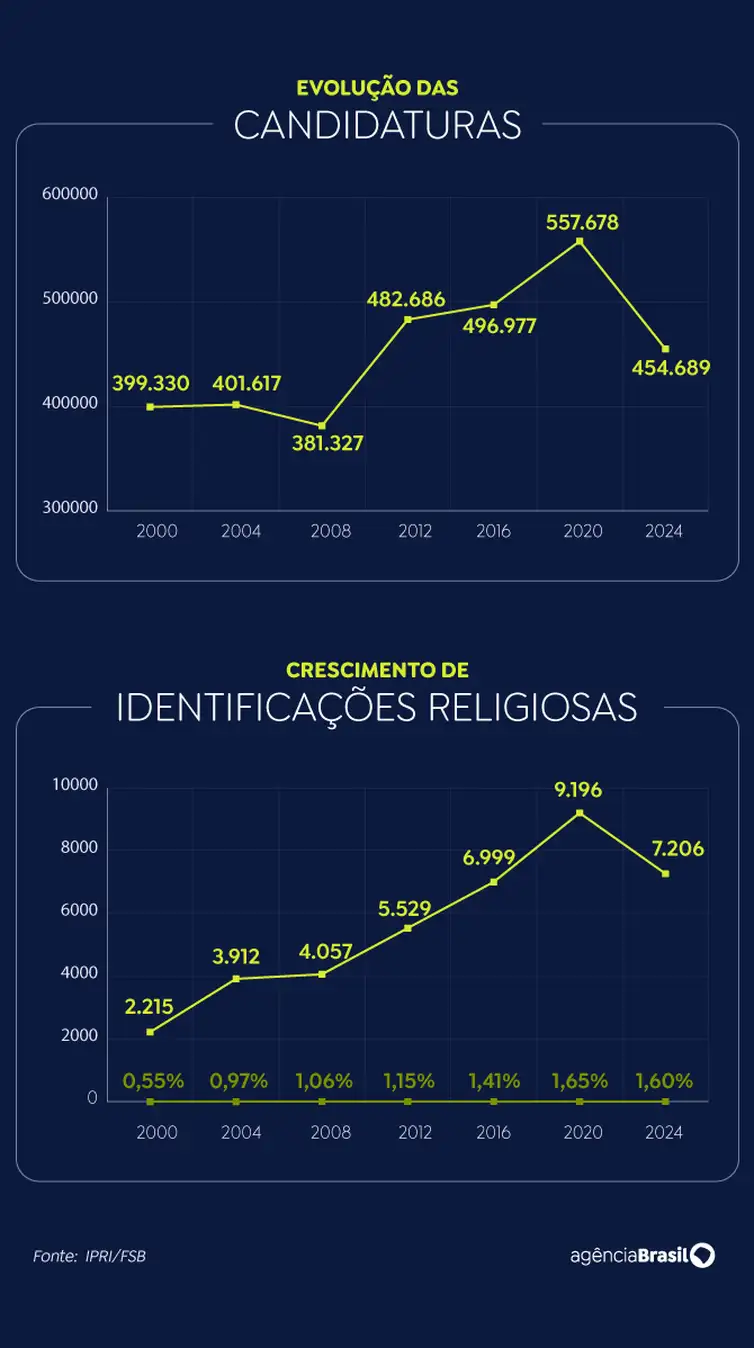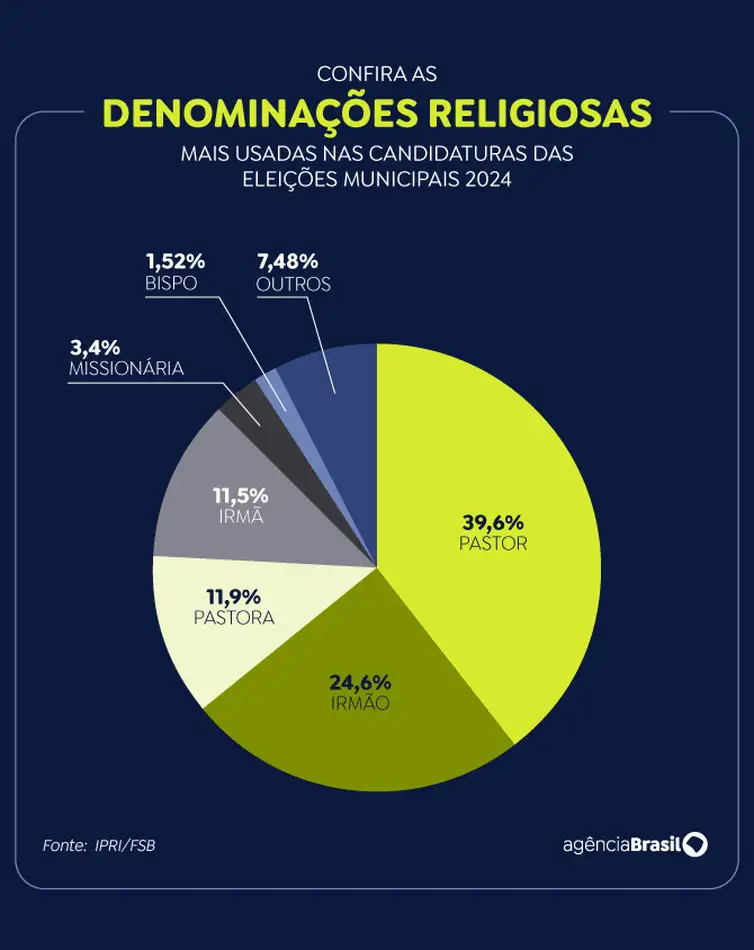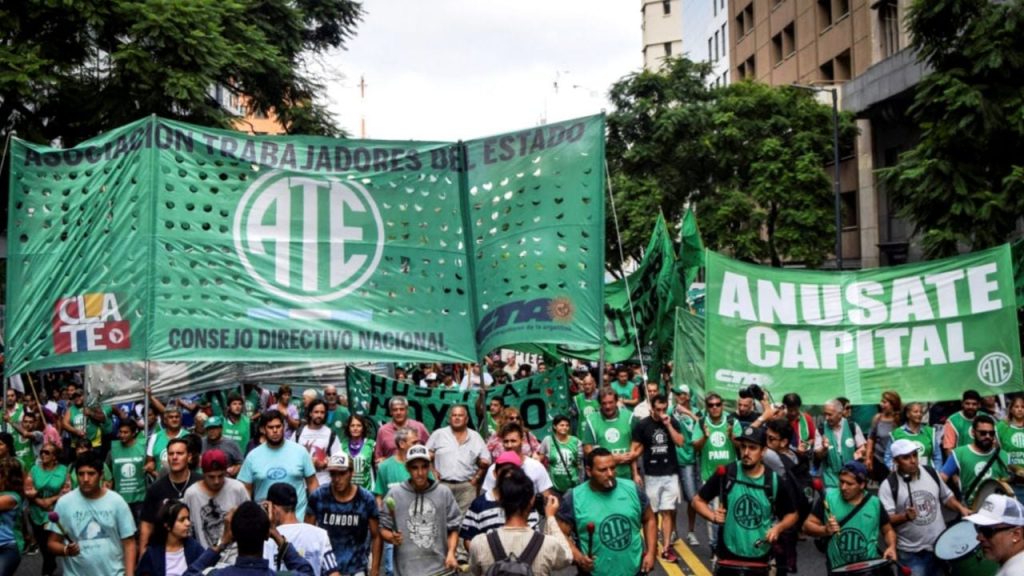The number of city council and mayoral candidates who explicitly use a religious identity in their campaign names has grown by around 225% over the course of 24 years. In an unprecedented survey, the Image Research and Reputation Institute (IPRI), from FSB Holding, collected data from the statistics portal of the Superior Electoral Court (TSE) from the last seven municipal elections, between 2000 and 2024. The survey, with exclusive data obtained by Brazil Agencyshows that the growth rate of candidacies with a religious bias is 16 times greater than the increase in the total number of candidacies in local elections.

In 2000, the number of candidates with religious identity was 2,215, in absolute terms. In 2024, it reached 7,206 (+225%). In the same 24-year period, the total number of candidates increased by 14%, rising from 399,330 in 2000 to 454,689 in this year’s municipal elections. In 2000, the number of candidates with religious identity represented 0.55% of the total, while in this year’s elections they represent 1.6% of the total number of registered candidates.
To arrive at these numbers, IPRI analyzed the names of all candidates throughout the elections, applying filters for evangelical, Catholic and African-based religions to identify direct links with the candidacies. Among the words used are: father, mother, pastor, missionary, bishop, bishops, apostle, reverend, brother, sister, priest, babalorixá, ialorixá, minister, ogum, exú, iansã, iemanjá, obaluaê, oxalá, omulu, oxóssi, oxum, oxumaré and xangô.
The record number of religious candidates, however, was registered four years ago, in the 2020 municipal elections, when there were 9,196 candidates, including candidates for mayor and city councilor. However, in that same election, there were approximately 100,000 more candidates, in absolute total numbers, reaching 557,678 registered names. The drop in the total number of candidates reflects the effects of the end of proportional coalitions, distribution of resources from the electoral fund, organization of parties into federations and increase in campaign costs.
“The data from this survey demonstrates a strong increase in the appeal of religion in politics. Over time, the number of candidates who adopt religious denominations in their names on the ballot has grown much more than the total number of candidates in municipal elections,” says Marcelo Tokarski, managing partner of the Institute for Image Research and Reputation (IPRI).
“But it is important to emphasize that this does not necessarily mean an increase in the number of religious candidates who will be elected, because this depends, among other things, on the actions of the parties and the distribution of campaign resources,” he ponders.
Evangelicals in the lead
Candidates with titles related to the evangelical religion make up the overwhelming majority of candidates with religious identities identified in the IPRI/FSB survey. In this year’s elections, the most common terms are: pastor (2,856), brother (1,777), pastoress (862), sister (835) and missionary (247). Together, they total 6,557 candidates, which represents more than 91% of the total candidates identified with some religion.
This representation is even greater considering other terms associated with evangelicals that appear in the names of candidates in the polls, such as missionary (48), apostle (23) and minister (three).
Terms such as father (106) and mother (81), normally linked to names of religions of African origin, appeared in the results of this year’s candidacies, but in a more residual quantity. Catholic names of candidacies, such as priest (68), also appeared in the survey over the years, and in this year’s election, in a recurring way.
Religious mobilization
Religious mobilization in electoral campaigns is a historical reality in Brazil, which has grown over the last few decades driven by new religious movements that sought to occupy a space of institutional representation and power.
“Since the redemocratization and the Federal Constitution of 1988, with a country that guaranteed greater religious freedom and religious pluralism, new religious movements began to demand more space in the relationship with the State and with institutional politics that until then had been monopolized by the Catholic Church. It was something that was perceived as natural, no one found it strange. The Universal Church of the Kingdom of God (IURD) inaugurated there, in the early 1990s, a new way of doing politics, calling on evangelicals not only to vote and discuss politics but also to establish official candidacies supported by the Church”, explains anthropologist Lívia Reis, postdoctoral researcher in the Graduate Program in Social Anthropology at the National Museum of the Federal University of Rio de Janeiro (UFRJ) and coordinator of the Religion and Politics Platform of the Institute of Religious Studies (ISER).
Little by little, according to the researcher, this model is also being followed by other evangelical religious denominations, also following a more physiological process of political participation, to guarantee institutional representation in parliaments, access to public concessions for radio and television channels, for example, and space for expression and defense of the so-called “moral agendas”, which begin to gain more centrality after the 2010 elections, when abortion entered the center of the debate.
“While, on the one hand, official candidacies supported by evangelical churches continue to have good results at the polls, they do not always mobilize religious names at the polls. On the other hand, candidates who are not religious have begun to identify themselves as Christians – in a generic way – to communicate to the electorate the set of values with which they identify or to ask for votes in small and medium-sized churches, which do not have their own official candidacies. It is also important to remember that, in municipal elections, local dynamics in the territories are highly valued and, often, need to be combined with a religious identity for that candidate to be successful in the election”, analyzes Lívia Reis.
Electoral efficiency
In a wide search Regarding religious candidates in the 2020 municipal elections, ISER analyzed the dispute for seats in city councils in eight Brazilian capitals: Rio de Janeiro, São Paulo, Belo Horizonte, Porto Alegre, Salvador, Recife, Belém and Goiânia. The data produced were obtained through monitoring and analysis of the social media of candidates for the Legislative Assembly in these cities and sought to identify, among more than 10 thousand candidates for councilor, those who had some religious link or identity. In total, 1,043 candidates with religious identity were counted in the eight capitals monitored.
“Thus, despite representing, on average, 10.71% of the total number of candidates, at the end of the elections, candidates with religious identities also occupied, on average, 51.35% of the seats in each City Council surveyed. The data also demonstrate that candidates who directly mobilized religiosity during the campaign received more votes. Consequently, it indicates that the mobilization of religious and moral aspects, in different ways, is an effective strategy for electing candidates,” says an excerpt from the research report.



















